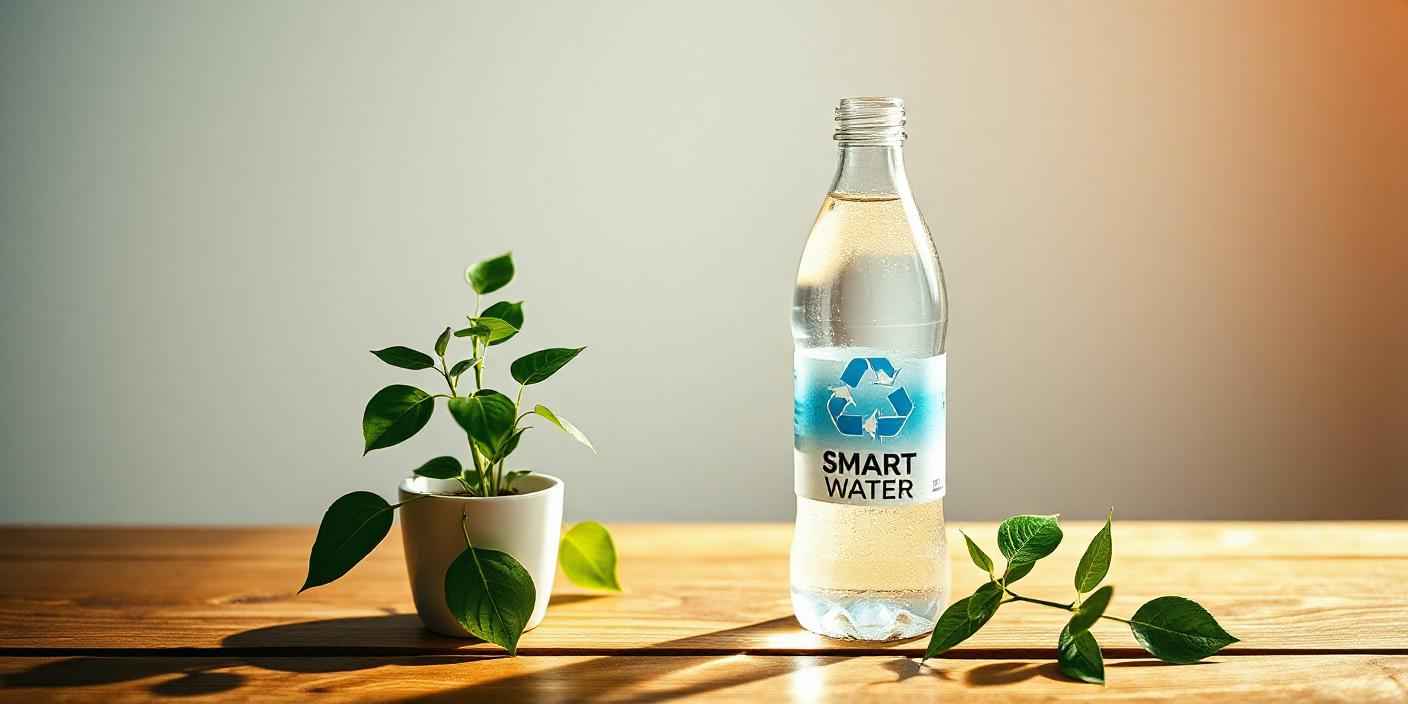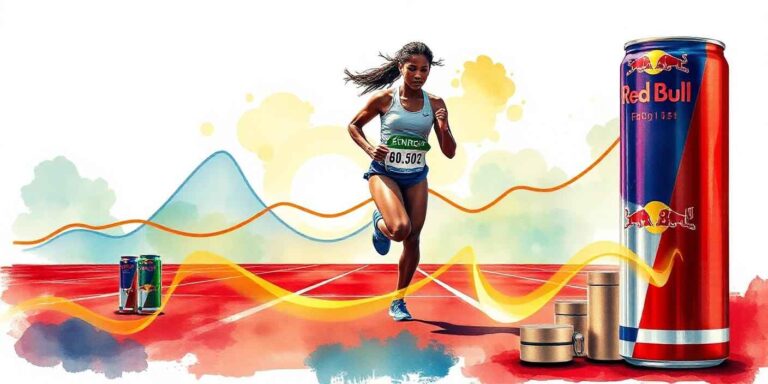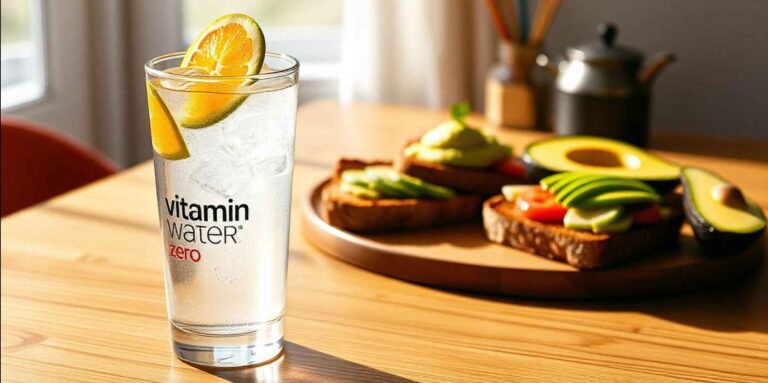Is Smart Water Good For You? Find Out Now!
Is Smart Water Good For You? Smart Water can be a good option for hydration and offers some benefits over regular water, but it is not necessarily superior to other water sources.
Regular filtered water or tap water can provide similar hydration without the added cost and environmental concerns. Ultimately, the choice depends on personal preferences and health considerations.
Key Takeaways
- Smart Water Composition: Smart Water is vapor-distilled and infused with electrolytes like calcium, magnesium, and potassium to enhance taste and hydration.
- Hydration Benefits: While it may promote better hydration for some due to its flavor, regular water provides similar hydrating benefits without additional costs.
- Electrolyte Source: Most people receive adequate electrolytes from a balanced diet; the added minerals in Smart Water are minimal and typically unnecessary for daily life.
- Environmental Concerns: The production of single-use plastic bottles contributes significantly to pollution, raising sustainability issues associated with bottled water consumption.
- Cost Analysis: Smart Water is more expensive than tap water or other bottled options, making it less economical for regular hydration needs.
- Expert Opinions Vary: Many experts suggest that while Smart Water is popular, it’s often not needed when tap water can suffice for hydration.
Overview Of Smart Water
Smart Water is a premium bottled water brand from Coca-Cola that focuses on hydration. It’s made through a vapor distillation process, which means it undergoes purification similar to the natural water cycle. This method ensures high purity, making it an appealing choice for many.
What Is Smart Water?
Smart Water offers vapor-distilled water infused with electrolytes. These added minerals enhance taste and support hydration needs. The brand promotes its product as beneficial for maintaining energy levels and aiding bodily functions.
Ingredients And Composition
The main components of Smart Water include:
- Vapor-distilled water: This purified water forms the base of every bottle, ensuring cleanliness and freshness.
- Electrolytes: These key ingredients improve flavor and hydration:
- Calcium chloride: Supports pH balance in the body.
- Magnesium chloride: Contributes to muscle function.
- Potassium bicarbonate: Aids in nerve signaling.
These ingredients combine to create a refreshing drink that helps you stay hydrated throughout your day.
Health Benefits
Smart Water promotes hydration, but it’s essential to evaluate its health benefits. Some claims suggest advantages due to added electrolytes, yet evidence shows mixed results.
Hydration Benefits
Regular water is effective for rehydration. Studies indicate that drinking enough water helps maintain body functions and energy levels.
Smart Water may taste better to some, making it easier for you to drink more fluids throughout the day. However, regular tap or bottled water provides similar hydration without extra costs.
Electrolyte Balance
Electrolytes like calcium, magnesium, and potassium support bodily processes such as nerve function and muscle contractions. Smart Water contains these added electrolytes in small amounts.
While they can help with hydration during intense exercise or heat exposure, most people get sufficient electrolytes from a balanced diet rich in fruits and vegetables.
While Smart Water markets itself as beneficial for hydration and electrolyte balance, regular water remains a suitable choice for most individuals seeking proper hydration without the additional cost or potential negative effects of distilled water consumption over time.
Nutritional Value
Smart Water contains spring water and electrolytes like calcium chloride, potassium chloride, and magnesium chloride. These electrolytes enhance the water’s nutritional value, aiming to support hydration. However, the amounts of these electrolytes are not much different from those in regular water.
Comparison With Regular Water
Regular water is enough for most people’s hydration needs. The added electrolytes in Smart Water do not provide significant benefits during typical daily activities. Studies show that regular water effectively rehydrates you.
Only during extreme dehydration or intense physical activity might additional vitamins and minerals be necessary.
Calories And Additives
Smart Water has no calories or added sugars, making it a calorie-free choice for hydration. This feature appeals to those looking to avoid extra calories while staying hydrated. Regular water also shares this benefit, as it contains no calories or additives either.
Potential Drawbacks
Smart Water, while marketed as a premium product, has several potential drawbacks that you should consider.
Environmental Impact
The production and disposal of single-use plastic bottles, including Smart Water, significantly contribute to environmental pollution.
Research indicates that millions of these bottles end up in landfills or oceans each year, releasing toxins into the air and waterways.
For instance, the EPA reports that about 29% of plastic bottles are recycled in the United States. This low recycling rate raises concerns about sustainability and environmental health.
Cost Considerations
Smart Water comes with a higher price tag than tap water or many other bottled water brands. On average, a single bottle can cost you between $1.50 to $3 depending on the size and location of purchase.
In contrast, tap water costs only about $0.004 per gallon, making it a more economical choice for hydration.
Misleading Marketing Claims
Marketing messages often highlight Smart Water’s supposed health benefits and purity. However, these claims may not accurately reflect its advantages over regular water or other bottled waters.
Studies show that while electrolytes are added to enhance taste, your body gets sufficient electrolytes from a balanced diet without needing this premium product.
These potential drawbacks suggest caution when considering Smart Water as your primary source of hydration.
Is Smart Water Good For You?
Smart Water offers a popular choice among bottled waters. It is known for its vapor distillation process, making it pure and refreshing.
The brand claims to enhance hydration with added electrolytes like calcium chloride, potassium chloride, and magnesium chloride.
Expert Opinions
Some experts argue that Smart Water is unnecessary. They emphasize that tap water provides adequate hydration without the cost of bottled varieties. Home filtration systems can make tap water taste better while ensuring safety.
Studies show that many people buy bottled water due to convenience and taste rather than health benefits.
The purification process involves multiple steps, including vapor distillation. This method creates a clean product but does not offer significant advantages over regular water for most consumers.
Research indicates that perceptions about bottled water’s health benefits are weak motivators for purchases; factors such as taste, cost, and convenience play larger roles.
Consumer Experiences
Consumer feedback on Smart Water varies widely. Some users praise the quality and taste, appreciating the crispness it provides during workouts or hot days. Others find it overpriced compared to alternatives like natural springs or mineral waters.
While some enjoy the electrolytes in Smart Water, others report feeling no noticeable difference from drinking regular water. Many consumers prefer tap water due to its low cost and availability.
Smart Water may appeal to those seeking a premium option but doesn’t provide unique benefits over standard drinking options for most individuals.
Conclusion
Choosing Smart Water can be a personal decision based on your preferences for taste and convenience.
While it offers hydration with added electrolytes it’s important to weigh the cost against alternatives like tap water or filtered options.
Remember that staying hydrated is key whether you opt for premium bottled water or simpler solutions.
Be mindful of the environmental impact associated with bottled water and consider how often you truly need these premium options in your daily routine.
Ultimately, what matters most is finding a hydration method that fits your lifestyle while being informed about your choices.
Frequently Asked Questions
What is Smart Water?
Smart Water is a premium bottled water brand by Coca-Cola known for its vapor distillation process. This method removes impurities, and the water is enhanced with electrolytes like calcium chloride, potassium chloride, and magnesium chloride for added taste.
How does Smart Water compare to tap water?
While Smart Water promotes hydration and electrolyte balance, experts argue that tap water, especially when filtered at home, offers a cost-effective alternative that provides similar hydration benefits without the higher price tag.
Why do some consumers prefer Smart Water?
Consumers who choose Smart Water often cite reasons such as taste, convenience, and perceived quality. However, opinions vary widely; some appreciate its refreshing flavor while others believe it’s overpriced compared to other options.
Are there health benefits to drinking Smart Water?
Research indicates that perceptions of bottled water’s health benefits are not strong motivators for purchases. Most individuals find taste and convenience more compelling reasons to buy bottled water rather than any unique health advantages.
What are the drawbacks of choosing Smart Water?
Smart Water comes with potential drawbacks including a higher cost than tap water and environmental concerns related to plastic waste. Additionally, marketing claims about superior health benefits may be misleading; consumers should approach these claims cautiously.






